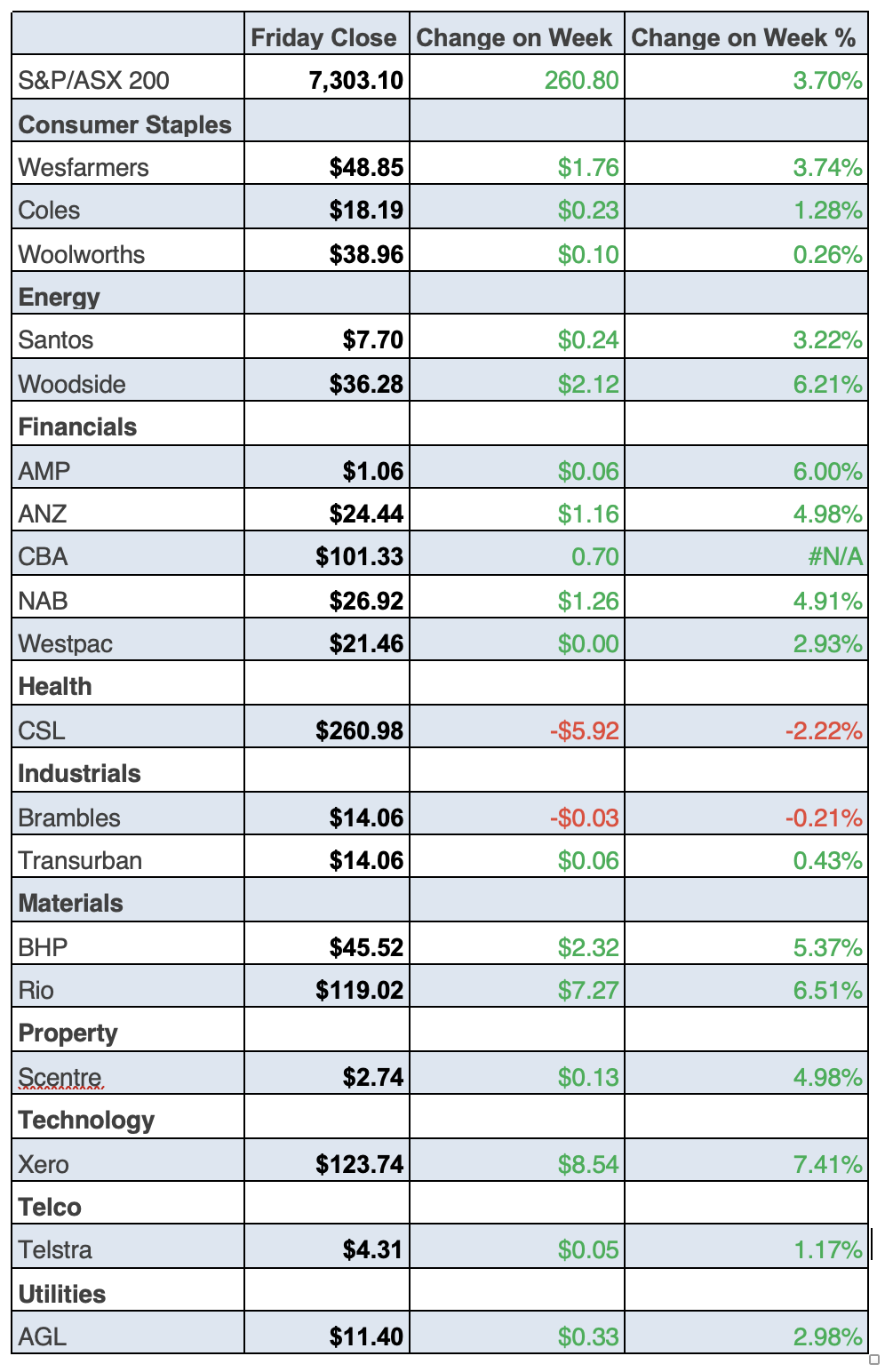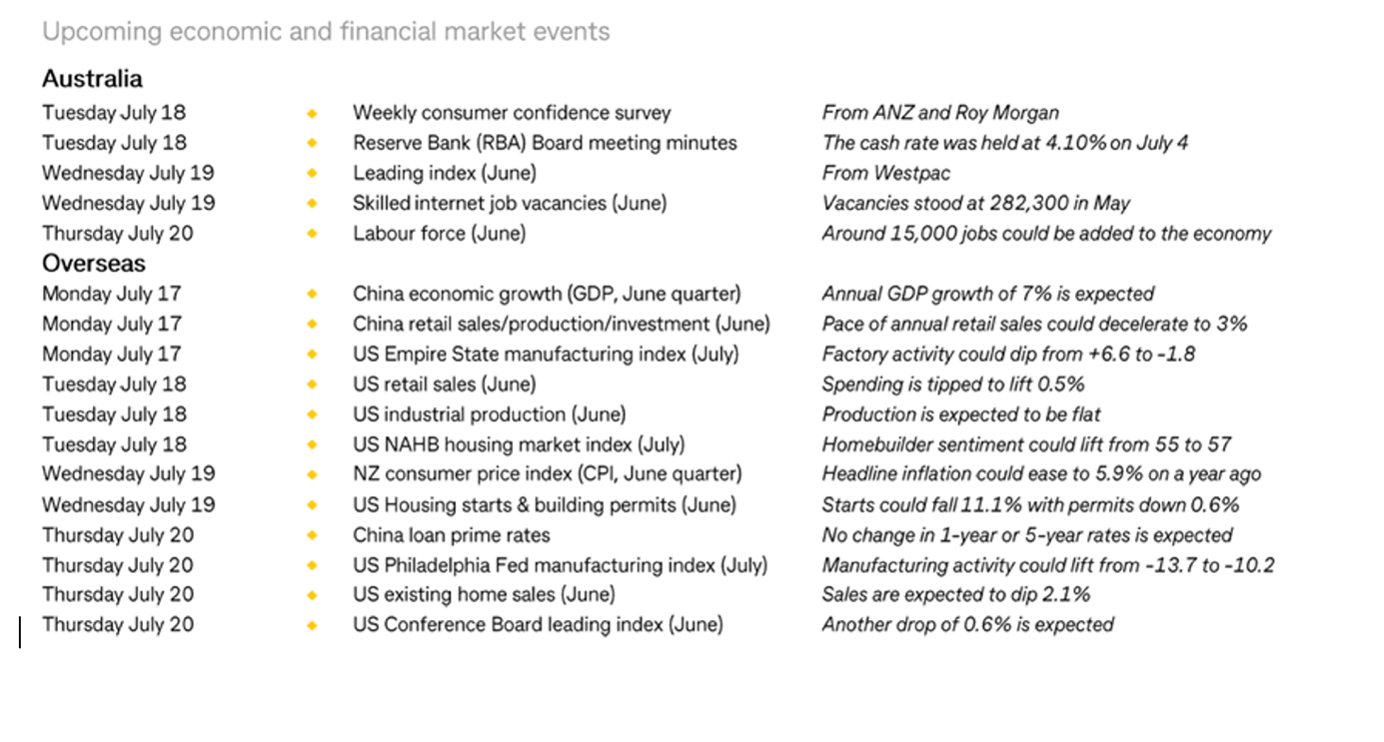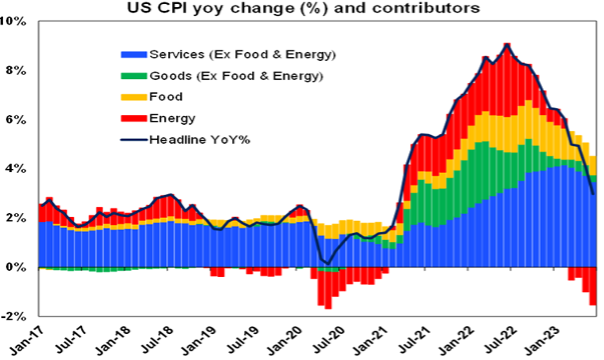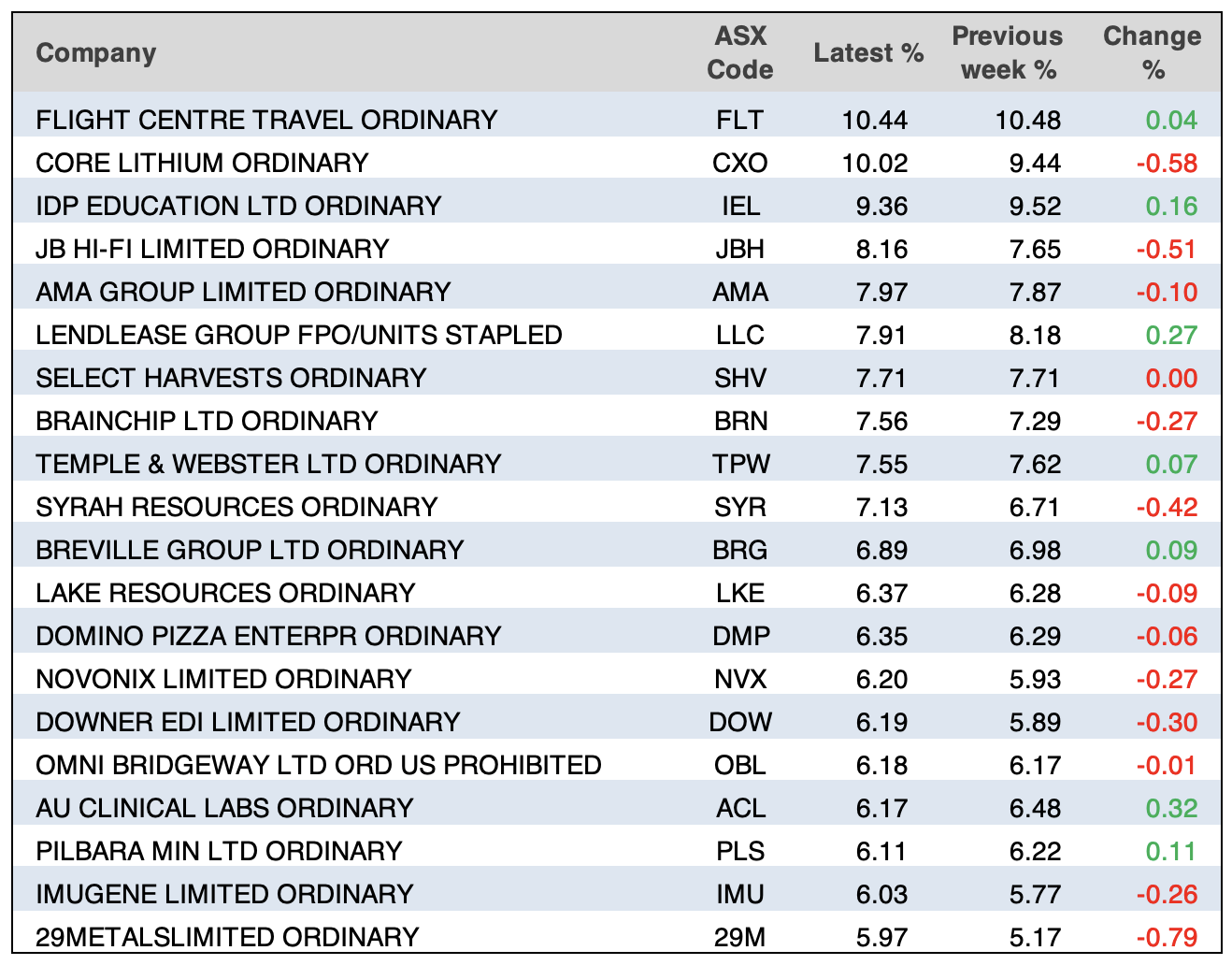
It’s been a huge positive week for stocks, with Wall Street seemingly taking on a gutsy “let’s punt the inflation number will be good” attitude before Wednesday’s CPI data drop, and the courageous bulls nailed it! A bit of profit-taking arrived for US markets over night, but it’s been a great week for optimistic share players.
If you need reminding, our market was up 3.7%, which even topped the big 3%+ rise of the Nasdaq. The Nasdaq Composite (the home of the Magnificent Seven that has driven this index, along with the S&P 500) is up around 35% year-to-date, while our market is up, wait for it, 5%! Meanwhile, the S&P 500 is up 17% but again those M7 stocks (Apple, Amazon, Alphabet, Meta, Microsoft, Nvidia and Tesla) have done most of the heavy lifting that has driven that index, which houses the top 500 listed companies in the US.
And that gives us the clue where the next leg up for stocks is likely to come from. The other 493 largely ignored US stocks in the S&P 500 will help share markets trend higher, once the Fed has stopped rate rises.
Our market will play follow the leader like it did this week, but we also must come up with a good inflation result and a strong belief that the new RBA governor Michelle Bullock won’t have to keep whacking home loan borrowers to get some real oomph into stock prices.
So, the market will keep scanning the US economic data to confirm the fight against inflation is (or nearly is) over, which makes the Fed’s next interest rate meeting (the week after next) a big event.
In addition to this, the market will have a razor-sharp focus on US reporting season that has now started. On that subject, the early news is better than anticipated.
Like the overall US economy, the early financial institutions that did a show-and-tell on Friday impressed. JPMorgan and Wells Fargo showed they weathered the banking crisis, but I guess they benefitted from suspicions about smaller regional banks, while United Health did everything right raising revenue, earnings, and guidance.
This take by Scott Ladner, chief investment officer at Horizon Investments, sums it up neatly: “What we’ve seen out of big bank earnings, especially JPMorgan, is resilient. We’re seeing right now [that] default rates are still historically incredibly low and not showing signs of skyrocketing higher. So that’s a good sign for consumers and the economy”.
Going into this second quarter, the guess merchants, who try to pick where company profits are heading, expect a 7% drop in overall corporate earnings, which would be the worst result since the same time in 2020 when the pandemic drove stock profits down a whopping 31.6%.
The much wished for Goldilocks outcome of lowering inflation without a high chance of a crippling recession in the US must be big drivers of this stock market climb. And by the way, for data drop watchers, which I have been emphasising would be crucial to how our stocks performed, the June Producer Price Index rose 0.1%, which was less than the 0.2% predicted by economists.
All that said, markets will watch bellwether companies to see if the Fed’s aggressive interest rate rises have hurt profits more than expected, and we can’t easily assume that the US central bank’s work is done. Early this week, investors were unsettled by comments from Federal Reserve interest rate voters, where three of the four Fed members (Barr, Daly, and Mester) echoed the need for more hikes to control inflation. On the other hand, Fed member Bostic was the odd one out and called for more patience to assess the impacts of tightening to date.
Mary Daly, President of the Federal Reserve Bank of San Francisco, urged caution, telling CNBC in an interview this week that it’s “too early to say that we’ve declared victory on inflation”. However, I liked the bond market reaction that saw US yields drop sharply after the softer US inflation data.
The St George economics team reported that “…the US 2-year yield lost 13 basis points and the 10-year declined 11 basis points after the inflation number”. Interest-rate markets pared back the chance of further tightening from the Fed.
To the local story and the benchmark S&P/ASX 200 index rose 0.8% (or 56.2 points) on Friday to 7303.1, while the week brought a 3.7% gain.
The rally was broad-based, with tech starring following the great inflation news in the US. The forward-thinking market players are now betting that it’s only a matter of time before inflation falls better-than-expected here, after 12 interest rate rises and so beaten-up interest rate sensitive stocks are the target.
WiseTech put on 4.4% for the week to end at $79.02, NEXTDC gained 5.2% to $12.92 and Xero surged 7.2% to $123.74. But the mega-star for the week was Megaport, up a gobsmacking 39.4% to $9.54. Raising guidance about earnings will do that!
Gold also starred, with Evolution Mining up 15.6% for the week to $3.77, while Northern Star put on 7.23% to finish at $13.35.
Rising oil prices helped the likes of Woodside Energy, which was up 5% for the week to $36.28, while the big miners had a nice five-day trading, with BHP 5% higher to $45.52.
CSL continued its slide, off 1.8% this week to $260.98. It raises the question if this is now definitely in the buy zone, which I’ll look at on Monday. And from the “glad I persisted” department, Mesoblast jumped 21.9% this week, with another FDA decision on August 2. If anyone trusts this company to pull off a big win, they must be one of the most optimistic people in the world! That said, my fingers are crossed on this one!
What I liked
- Michelle Bullock getting the gig as RBA governor.
- US inflation at 3% and core inflation fell from 5.3% in May to 4.8%, which were both better than expected.
- Consumer sentiment (as measured by Westpac/Melbourne Institute) rose by 2.7% to 81.3 in July but remains at deeply pessimistic levels.
- Business conditions, as measured by NAB, held steady at +9 in June, while confidence rose to 0.
- The producer price index (PPI), which measures the change in wholesale prices in the US, increased by 0.1% over the month of June, following a fall of 0.4% in May.
- The Federal Reserve’s Beige Book showed the US economy recorded an overall increase in activity since late May, amid signs of a slowing trend. Employment increased modestly, with firms still finding it difficult to hire workers.
What I didn’t like
- The EU industrial production number declined by a sharp 2.2% over the year to May, after a 0.2% increase in April.
- UK wages (excluding bonuses) grew by a significant 7.3% compared to a year ago. This was the largest recorded increase outside the COVID-19 pandemic. This wages outcome points to persistent inflation going forward and would be of concern to the Bank of England.
- In stark contrast to most developed economies, inflation continues to be very low in China. Indeed, the consumer price index (CPI) was flat over the year to June, bordering on outright deflation. This followed a weak reading of 0.2% over the year to May.
- Rate rises are biting in the US with consumer credit expanding at its slowest pace since November 2020. Credit expanded by $7.2 billion in May, down from the $20.3 billion pace in April. The outcome was well below expectations of $20 billion.
Have the bulls chased the bears away?
The bulls can’t over-celebrate, with the likes of former US Treasury Secretary and Harvard professor Larry Summers, arguing that the Fed must keep on raising rates.
The AFR’s Matt Cranston said that Summers “pressed the Fed to continue its aggressive monetary tightening campaign to stop inflation from bouncing back”.
In fact, this is what he said: “The best guess is that the Fed is going to have to raise rates more. If the Fed wants to see inflation get back to its target, it’s going to have to raise rates enough that at some point, the economy suffers”.
On the other hand, CNBC reported this week that the “Nobel Prize-winning economist Christopher Pissarides believes there’s no need for the Federal Reserve to keep raising interest rates in the coming months, saying policymakers at the U.S. central bank should instead look to take a breather in the battle against inflation”.
The bulls are close to declaring victory. However, any excessive Fed rate-rising decision that could spook the market will be yet another buying opportunity.
The Week in Review
Switzer TV
- Switzer Investing: Time to buy oil stocks and banks? Plus 3 stocks to buy.
- Boom Doom Zoom: 13th July 2023
Switzer Report
- In times like these it pays to invest the way legends do
- 3 ETFs that provide investors with exposure to cash
- “HOT” stock: Beach Energy (BPT)
- Questions of the Week
- 5 income favourites for 2023 – how are they doing?
- HOT stock: Goodman (GMG)
- 3 opportunities on the ASX
- Buy, Hold, Sell — What the Brokers Say
Switzer Daily
- Bankrupts and fraudsters are about get their comeuppance!
- Bank boss bashes councils and NIMBYs for ballooning house prices!
- Support for Albanese government falls as rates and Budget Surplus surge, but is a bigger problem lurking?
- Will a relatively unknown woman replace the battle-scarred Dr Phil Lowe?
- Bond market traders predict three more rate rises based on dodgy data
Top Stocks — how they fared.

The Week Ahead

Chart of the Week
Big News: US Inflation drops to 3%!

Stocks Shorted

ASIC releases data daily on the major short positions in the market. These are the stocks with the highest proportion of their ordinary shares that have been sold short, which could suggest investors are expecting the price to come down. The table shows how this has changed compared to the week before
Quote of the Week
This from Nobel Prize-winning economist Professor Christopher Pissarides, from the London School of Economics, who told CNBC that he believes there’s no need for the Federal Reserve to keep raising interest rates in the coming months, saying policymakers at the U.S. central bank should instead look to take a breather in the battle against inflation.
“It takes time for these to have their full effect, so given that inflation is moving in the right direction, that interest rates are high, I would just wait and see what happens next.” Pissarides, a professor at the London School of Economics, told CNBC’s “Street Signs Europe” on Thursday.
Bravo
Disclaimer
Important: This content has been prepared without taking account of the objectives, financial situation or needs of any particular individual. It does not constitute formal advice. Consider the appropriateness of the information in regard to your circumstances.

